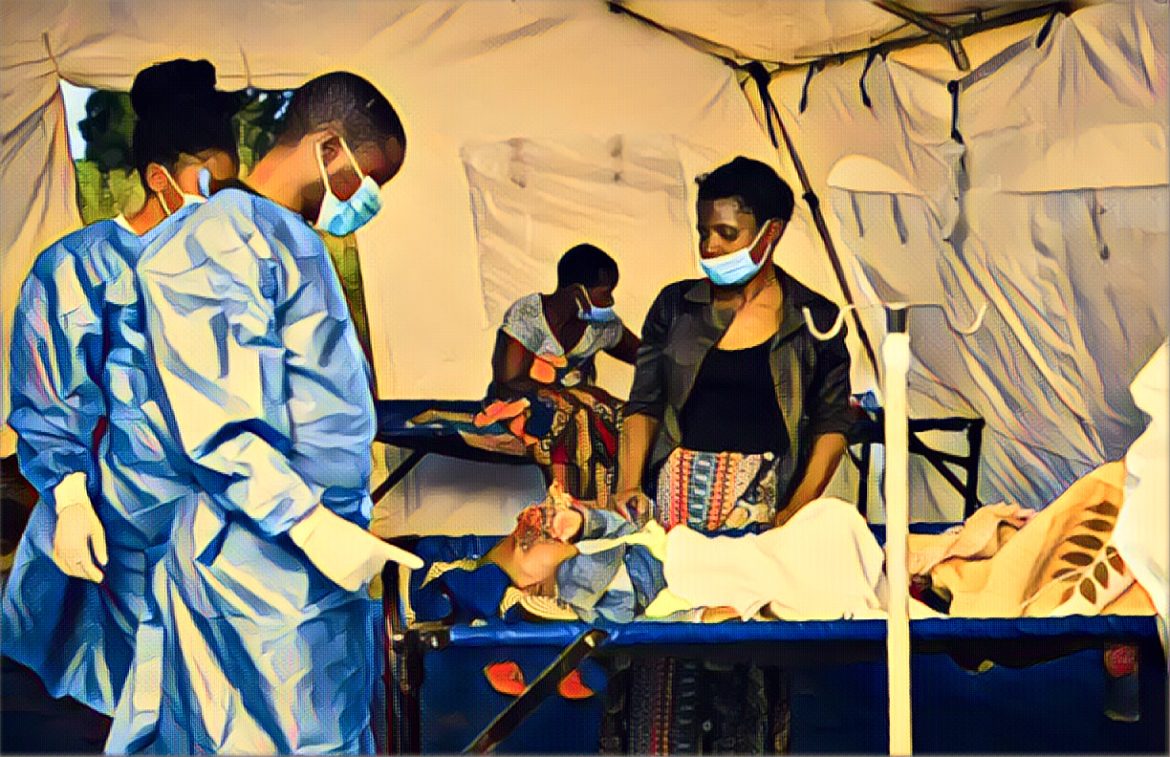Southern African countries are grappling with a severe cholera crisis that is disrupting essential services and affecting the lives of millions. In Zambia, the outbreak has forced a delay in the school calendar, jeopardizing the education of 4.5 million students. Zimbabwe is witnessing a worrying trend where half of the cholera cases involve children under 15. Meanwhile, Malawi is experiencing the deadliest impact, with over 1,700 deaths recorded.
This alarming situation was the focus of an extraordinary virtual meeting held by health ministers from the Southern African Development Community (SADC), along with officials from the World Health Organization (WHO) and the Africa Centres for Disease Control and Prevention (Africa CDC). The meeting aimed to strategize on combating the escalating cholera outbreaks across the continent.
According to a report by Newsday, Dr. Matshidiso Moeti, the WHO regional director for Africa, emphasized the urgency of the situation. According to her, 12 African countries are currently experiencing acute cholera phases, with recurrent cases over the past two years. She highlighted the critical need for more vaccines and improved sanitation facilities to address the crisis effectively.
The meeting revealed that only three SADC countries—South Africa, Botswana, and Namibia—can adequately handle the water-borne disease. In response, the WHO has deployed over 140 public health experts to affected regions, invested approximately R190 million, and provided essential emergency supplies.
Zambia’s situation is particularly dire, with over 484 deaths from more than 11,000 cholera cases since October last year. The outbreak’s impact on children is profound, causing significant disruptions to their education. Jo Musonda, the country director for Save the Children in Zambia, warned of the long-term consequences of such educational delays, including increased risks of child marriage, forced labor, and exploitation.
The funding gap to combat cholera in Zambia stands at 81%, with the WHO estimating a need for at least R85 million. Meanwhile, Zimbabwe has initiated a massive oral cholera vaccination campaign, initially targeting 800,000 people, with plans to vaccinate up to 2.3 million children.
In Zimbabwe, Health Minister Douglas Mombeshora provided a sobering statistic: 31% of the reported cholera cases are children under 15, with 14% under five. The country has recorded over 20,000 cases and 452 deaths. This vaccination drive is a critical step in curbing the spread of the disease among the most vulnerable populations.
Malawi’s cholera outbreak has been the most devastating, with nearly 60,000 cases and 1,771 deaths by mid-December. The scale of this outbreak has strained the country’s health services, highlighting the need for immediate and sustained intervention.
The cholera crisis in Southern Africa is a stark reminder of the importance of robust health systems and the need for regional cooperation in tackling such emergencies. The efforts of organizations like the WHO and Africa CDC, in collaboration with affected countries, are crucial in managing the outbreak and preventing further loss of life.
The situation calls for a concerted effort from all stakeholders, including governments, international agencies, and local communities, to address the root causes of cholera and implement long-term solutions. Improving access to clean water, sanitation facilities, and healthcare services, along with public education on hygiene practices, are essential steps in preventing future outbreaks.
In conclusion, the cholera crisis in Southern Africa is not only a public health emergency but also a humanitarian concern with far-reaching implications. The swift response and continued vigilance of the international community, regional bodies, and national governments are imperative to control the spread of cholera and safeguard the health and well-being of millions of people across the region.


